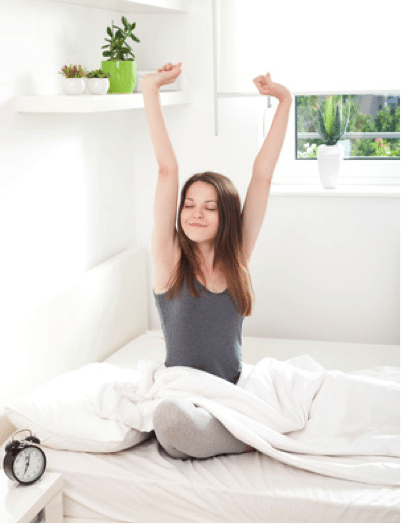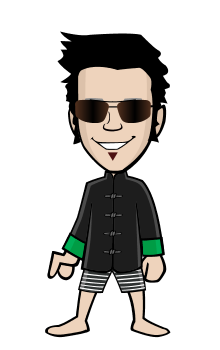The Science of Better Sleep
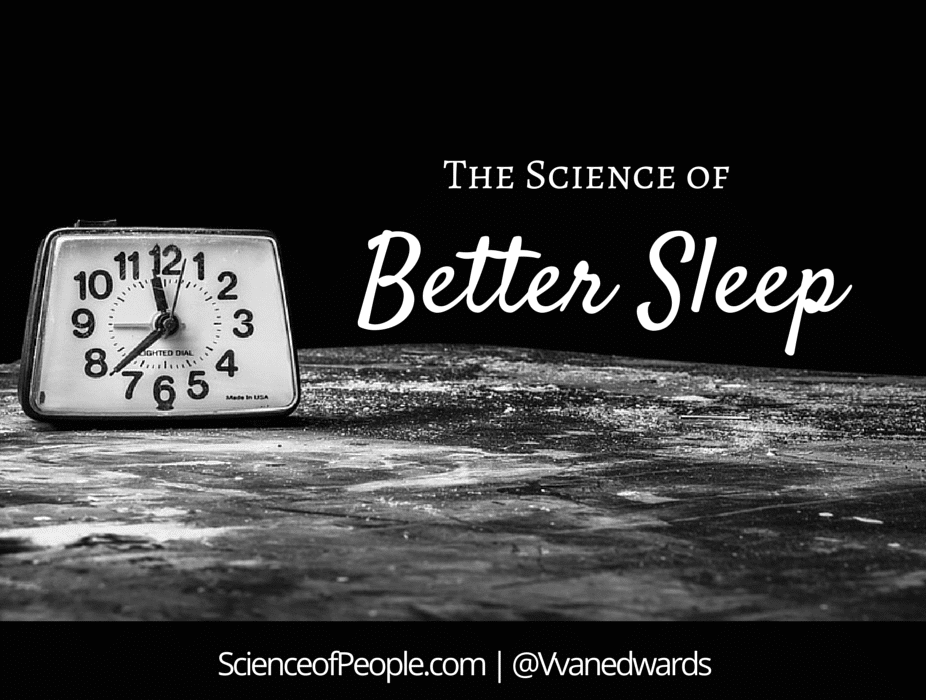
This article is written by Kyle McNatt, an Engineer, Entrepreneur, Copywriter, and Body Language Trainer certified through the Science of People. He helps entrepreneurs succeed. You can contact him by email at: kyle@advantagebodylanguage.com
Sleep is wonderful. It is amazing, and it is absolutely necessary for a long and happy life. So thank goodness it is so darn enjoyable.
Unfortunately, many people just can’t seem to consistently get all the rest they need. They toss and turn and don’t know what to do. They wonder what can they do if they don’t want to take medication or supplements? What actions can they take? Luckily with a little knowledge about the science of sleep and some of today’s technology, slumber nirvana is just a few steps away.
Why?
Sleep is the way your body restores itself, processes the day’s events and files the memories away. This allows you to wake up feeling energized and ready for the next day. The process of sleeping and waking up is controlled by your body’s circadian rhythm and the circadian rhythm is heavily affected by darkness and light. According to Dr. Michael J. Brues the more consistent and stable that rhythm is, the better we sleep.
How it works is really pretty cool. As night comes and it gets darker, your body starts to create a hormone called melatonin. What melatonin does is make us feel tired and gets the body ready for sleep. Once we sleep through the night and we are exposed to light, our body starts to create a hormone called serotonin which wakes us up and gives us a bunch of “start your day right” energy. This keeps us going through the day until darkness and the cycle or rhythm starts all over again.
The 5 stages of sleep:
According to Diana Walcutt, Ph.D, there are 5 stages of sleep and through the night you go through each of these stages several times.
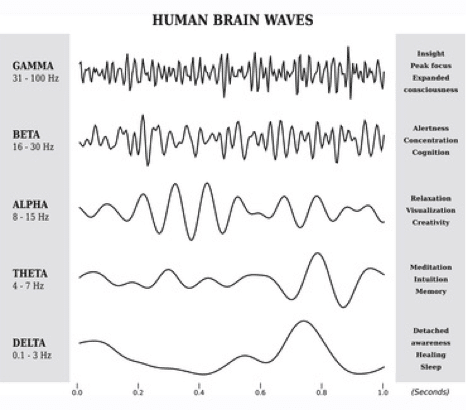
Stage 1 – This is called light sleep and this is the best stage to be woken up from as you cycle through all the stages each night. On average it usually takes about 7 minutes to fall into stage one and then you spend 5-10 minutes here as we go through Alpha and then Theta brain wave states.
Stage 2 – This is still considered light sleep and during this time you are still in a Theta state as your heart rate slows and body temperature drops.
Stages 3 and 4 – These two stages are the deepest of the sleep cycles where you transition from Theta to Delta waves. This is when your body does most of its restoration and repair, sends out growth hormones reenergizes you and gets you ready for the next day. During this time you go into the slowest sleeping brainwave activity cycle calledDelta Sleep .
REM - REM stands for Rapid Eye Movement and this is the stage where most dreaming is done. This stage is associated with eye movement, increased respiration and brain activity. It is as beneficial for the mind as stages 3 and 4 are for your body. According to the National Institute of Health REM starts about 90 minutes after you fall asleep and at this point your voluntary muscles become paralyzed to keep you from harming yourself if you try to act upon what’s happening to you in your dreams.
Why is getting enough sleep important?
A ton of research has been done on all the horrible things that happen to you when you don’t get enough sleep. Lack of sleep is a severe problem for many people. In fact, according to the National Institutes of Health, 50 to 70 million Americans are affected by chronic sleep disorders and intermittent sleep problems that can significantly diminish health, alertness and safety. They also found that lack of sleep (or interrupted sleep) can lead to problems such as hypertension, heart disease, stroke, depression, diabetes and other chronic diseases. Another study fromNorthwestern University confirms this. This study shows evidence that a lack of sleep can contribute to obesity, diabetes and cardiovascular disease as well. Other studies show that it affects motor skills, decision making, attitude, ability to cope with stress and causes concentration and memory problems. But that's not all. Someone else’s lack of sleep can severely affect your health and safety too. According to the National Highway Traffic Safety Administration, people who drive when they are sleep deprived are responsible for more than 1,500 deaths and cause at least 100,000 car crashes each year.
How do you know if you are getting enough sleep?
Ok, so we now know that getting a really good night's sleep is important not only for our health and safety, but for the safety of everyone around us. But how do we know if we are getting enough? That magic number depends on your age, but most healthy adults require 8 to 8.5 hours of sleep. Studies have shown that some people need as little as 7 hours and others may need as many as 9. Some signs that you might not be getting enough sleep include:
- You fall asleep in less than 5 minutes of going to bed
- You need an alarm clock and/or use the snooze button often
- Get sleepy during the day
- Get sleepy during times of inactivity or while driving
- Fall asleep watching TV or reading when it is not your intent
- Get sleepy after meals
- Doze off for very short periods of time (around 5 minutes) during the day
- Have a hard time concentrating or remembering things
- Just plain feel sluggish and tired all the time
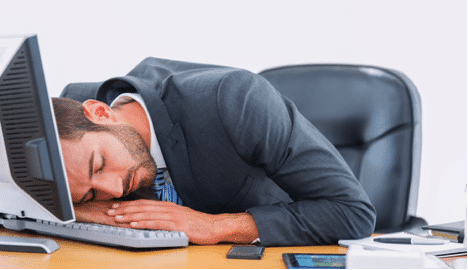
Do any of the above signs sound familiar to you? A lot of people that are sleep deprived are not even aware of it. There are dozens of sensor filled wearable devices to help you find out if you are getting enough of the right kind of sleep. These devices include sleep masks, watch style monitors and more which are worn on different parts of your body. They then can be paired with web or phone applications and provide fantastic data and graphs about different aspects of your sleep.
Now there are also tons of applications for all the major cell phone platforms that work without an external or wearable device and will help you look at your sleep. These are in no way as accurate or will give you as much data as the wearables, but they are free or relatively inexpensive and easy to use. For most of them you start them when you are laying down to sleep and rest the phone near you. It senses movement and uses that information to determine several things about your sleep.
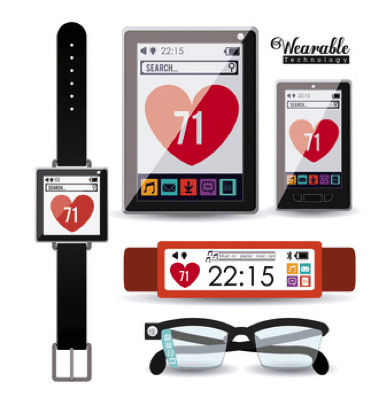
Both give you metrics to look at the quality and quantity of your sleep. Now that we have some data on how we are sleeping, let’s talk about what you can do to drastically improve it.
How to drastically improve your sleep:
The science behind getting great sleep is consistent, rock solid and easy to implement. The suggestions below to improve your sleep are well documented and proven over time.
In fact a good night’s sleep is as easy as 1, 2, 3….
- Your Body
- Your Sleeping Environment
- Your Mind
Only three things? This should be easy, so let’s get moving!
Your Body:
Exercise – Getting moving is the first suggestion. Experts agree that not only can exercise help you sleep, it reduces stress and puts you in a better mood. But don’t do rigorous exercise in the last 3 hours before you hope to go to sleep. Instead, opt for a nice walk or other relaxing activity before you go to bed. The National Sleep Foundation also found that people who exercised on a regular basis reported sleeping better than those with a more sedentary lifestyle. So go out and exercise your right to a better night’s sleep.

Eating and drinking – It is ok to have a light snack 2-4 hours before bed but don’t eat anything with lots of simple carbs or sugar and avoid big heavy meals. Also, don’t drink caffeinated beverages 5-8 hours before bedtime.Contrary to popular belief, you shouldn’t drink a lot of alcohol before you go to bed either. It will help you get into light sleep but suppresses deep and REM sleep which is the sleep you need the most.1 Lastly, make sure you stay hydrated during the day so your body can do the repair work it needs to at night without waking you up in the middle of the night to get a drink of water.
Nicotine – Smoking or using smokeless tobacco is bad for your sleep as well. Studies have shown that people who smoke wake up more frequently than non-smokers due to nicotine withdrawal.
Your Sleeping Environment:
Keep it cool – The Mayo Clinic found that people sleep better in a quiet, dark and cool environment. In fact most people sleep best when the temperature of their sleep environment is between 65 and 72 degrees Fahrenheit. Think of it as your sleep cave.
Keep it quiet - Try to keep noise to a minimum if possible. If you can't use ear plugs, try a white noise machine. You might even try some nice relaxing music. Several studies reported in the Journal of Advanced Nursing show that listening to relaxing classical music helps improve sleep quality in both students and older adults.
Sanctuary - Your bedroom should be your sanctuary. It should have no distractions to a good night's sleep and many experts say you should do nothing in your bed besides sleep and spending special time with your partner. That means no watching TV, working on the computer or reading while in bed. And for goodness sake, put that cell phone in airplane mode so it doesn’t become a distraction. It is ok to read before getting into bed, but have a separate area for that like your living or family room. In order to begin the relaxation process, try not to use electronic devices like a computer, tablet or cellphone an hour before bedtime.
Light exposure – Keep your bedroom as dark as possible while you are sleeping and allow access to sunlight as quickly as you can after waking up. According to sleep hacker Scott Britton, you should start to dim the lights after dark to start your body’s creation of melatonin. The production of melatonin will cause you to feel tired and help you fall asleep faster. Then sleep in as dark a room as possible and try to avoid having any electronics in the room with you like a computer or cell phone that may be distracting.
When you wake up, get into the sunlight. It stops the production of melatonin and starts the production of serotonin. To truly help strengthen your sleep cycle, get as much light exposure as possible each day by getting outside in the sunlight or by using a light machine if that is not possible.
Fluffy Friends – Many people sleep with their fluffy friends. According to a survey by the Mayo Clinic Sleep Disorder Clinic more than half of people who sleep with their pets say the animals disturb their slumber. If fluffy is keeping you awake at night, you may want to consider not allowing pets in your sleep sanctuary when you are trying to sleep.
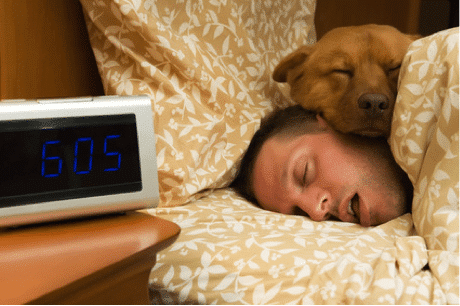
Your Mind:
Clear that cluttered mind – A racing mind will definitely cause sleeplessness. To help alleviate this you should plan out your next day before bed. Write down or record everything you need to do the next day. Keep a small notebook or recorder next to the bed with a small flashlight (so you don’t have to turn on the main light) to collect any thoughts that you might have during the night and may stress over remembering. Perhaps keep a journal or write down what you are grateful for each night before you go to sleep to put yourself in a positive state of mind. There are also lots of sleep apps to help you get in a relaxed state of mind before you go to bed. They will help you meditate, play relaxing sounds or even hypnotize you to release the tensions of the day. This helps stop your racing mind and puts you in a relaxed state of being.
Sleep ritual and consistency – Experts have shown having a before sleep ritual and going to bed and waking up at the same time each day strengthens your circadian rhythm and supercharges your sleep cycle. Avoid pre-bed activities that make your mind race like playing video
, watching intense television shows or movies, or reading exciting or non-fiction books. Things you should do include meditating, leisure reading, stretching and going for a quiet walk.
Waking at the optimal time - Waking up at the right time is just as important as going to sleep. Waking up in stage 1 or 2 is much better than any of the other stages. If your alarm clock wakes you from deep sleep or REM you may be agitated, disorientated and just plain grumpy. Luckily there are apps out there that will wake you up slowly over time. Even if you are in deep or REM sleep it will bring you out slowly and get you into stage 1 or 2 so you can wake up at your lightest sleep time without using harsh alarm clock sounds. Some people that can’t wake up with the sun use wake up alarm clocks and absolutely swear by them.
Conclusion:
Now that you understand what sleep is, how it works and if you are getting enough of it, you are way ahead of all those people who struggle to get quality sleep each night. Better yet, now you also have the tools and knowledge you need to be able to control the three factors that most affect your sleep. Of course, everyone has the occasional trouble getting to sleep or even a sleepless night, but if you implement the suggestions outlined here you will drastically increase the quality and quantity of your sleep. After all, getting fantastic sleep can sometimes take a bit of science, but luckily it isn’t rocket science. Sleep well.
